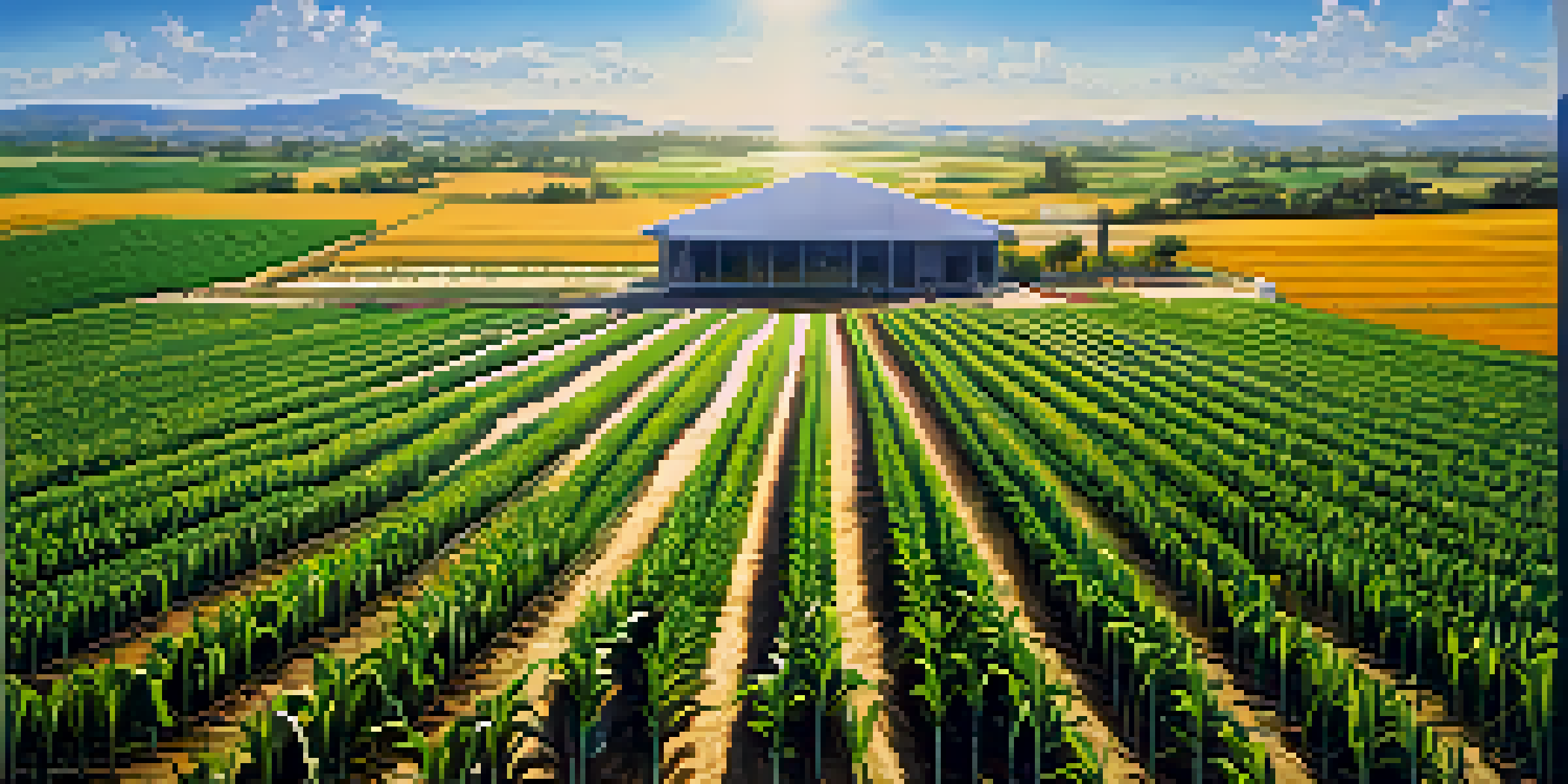Sustainable Practices in Plant-Based Energy Production

Understanding Plant-Based Energy Production
Plant-based energy production refers to generating energy from renewable resources derived from plants. This includes biofuels, biomass, and other energy forms harnessed from agricultural sources. Compared to fossil fuels, plant-based energy is more sustainable as it reduces greenhouse gas emissions and reliance on finite resources.
The Role of Biomass in Energy Generation
Biomass energy is derived from organic materials, such as wood, agricultural crops, and waste. By converting these materials into energy, we can effectively reduce waste and create a circular economy. For example, leftover crop residues can be transformed into biogas, providing an alternative energy source while minimizing environmental impact.
Plant-Based Energy is Sustainable
Generating energy from plants reduces greenhouse gas emissions and reliance on finite fossil fuels.
Benefits of Biofuels in Sustainable Energy
Biofuels, like ethanol and biodiesel, are produced from plant materials and offer a cleaner alternative to conventional fuels. They can significantly lower carbon emissions when used in transportation. Additionally, using crops like corn or sugarcane for biofuel production can support local economies and create jobs in agriculture.
Innovations in Algal Bioenergy
Algae is emerging as a promising source of bioenergy due to its rapid growth and high oil content. Researchers are developing methods to convert algae into biofuels, which could meet energy demands sustainably. Unlike traditional crops, algae can thrive in non-arable land and utilize carbon dioxide, making it a win-win for the environment.
Biomass Supports Circular Economy
Transforming organic materials into energy not only reduces waste but also fosters a circular economy.
Integrating Agrovoltaics for Dual Benefits
Agrovoltaics combines agriculture and solar energy production by installing solar panels on farmland. This innovative practice allows farmers to grow crops while generating renewable energy. Not only does it maximize land use, but it also provides shade for crops, reducing water evaporation and improving yield.
The Importance of Sustainable Farming Practices
Sustainable farming practices, such as crop rotation and organic farming, play a crucial role in plant-based energy production. These methods enhance soil health and increase biodiversity, leading to more resilient ecosystems. By prioritizing sustainability in agriculture, we can ensure a steady supply of high-quality feedstocks for energy production.
Agrovoltaics Maximizes Land Use
Integrating solar panels with agriculture allows for efficient land use, boosting crop yields while generating renewable energy.
Challenges Facing Plant-Based Energy Production
Despite its benefits, plant-based energy production faces several challenges, including land competition and resource management. As demand for food and energy rises, balancing these needs becomes crucial. Moreover, the environmental impact of farming practices must be monitored to avoid adverse effects on ecosystems.
Future Outlook: Potential of Plant-Based Energy
The future of plant-based energy production looks promising due to ongoing research and technological advancements. As we develop more efficient methods for converting organic materials into energy, the reliance on fossil fuels can diminish. With strong policy support and public awareness, plant-based energy can play a significant role in a sustainable energy future.